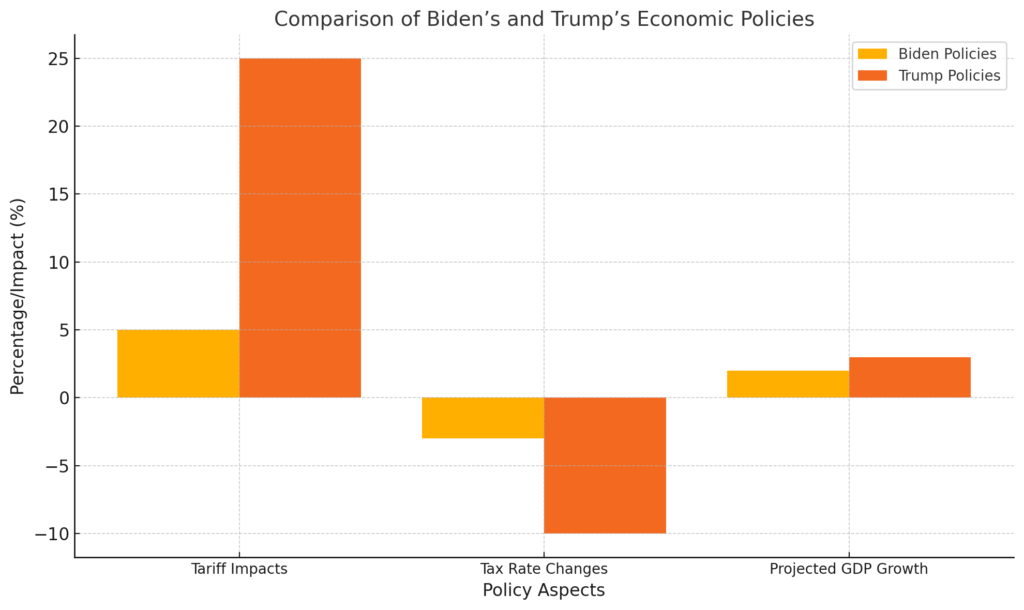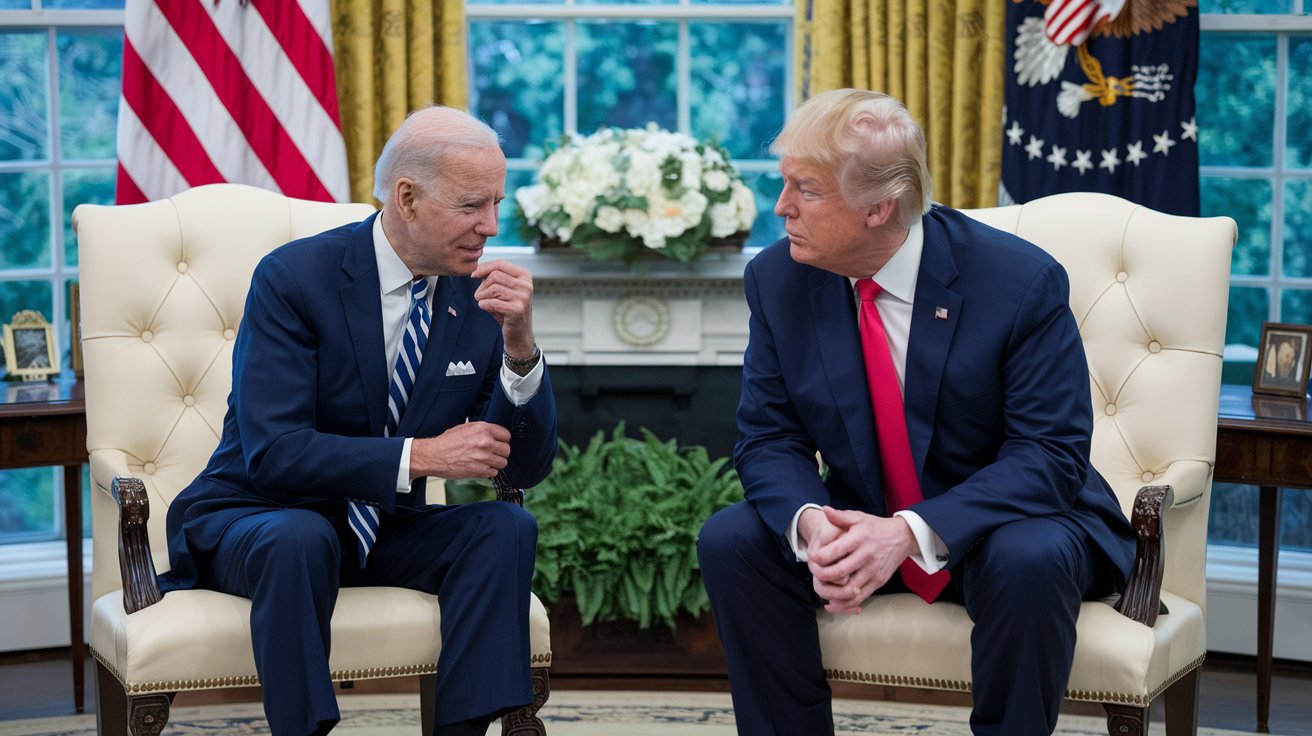President Biden and President-elect Trump met at the White House in a historic discussion centered on the future of U.S. economic policies. This high-stakes meeting, held in the Oval Office, highlighted the stark contrasts in their economic visions as they addressed pressing issues like tariffs, tax reforms, and trade relations. As the nation prepares for a significant leadership transition, the dialogue between these two leaders reflects the complexities of steering the economy through a period of change. The meeting wasn’t just symbolic; it set the stage for what could be one of the most debated economic transitions in recent history, with both leaders outlining policies that could redefine the nation’s financial trajectory.
By delving into critical economic strategies and their potential impacts, this article unpacks the key takeaways from the Biden-Trump discussion, offering an in-depth look at how this pivotal moment could shape America’s future
A Cordial Transition Amid Political Rivalry
President Biden welcomed President-elect Trump with a message of unity and a commitment to ensuring a smooth transition. Biden remarked, “Congratulations, Mr. President-elect. Our focus remains on ensuring that America thrives during this change.” Trump, in response, expressed his gratitude and optimism, describing the meeting as a “sign of a positive and professional handover.”
This exchange, while civil, highlighted deep policy disagreements, particularly regarding the economy—a critical issue shaping the future of the nation.
President Biden’s Economic Concerns: Growth with Equity
During the meeting, President Biden emphasized the significance of maintaining the economic progress made during his administration. Biden expressed concerns over Trump’s proposed policies, particularly the imposition of new tariffs and corporate tax cuts.
- Opposition to Broad Tariffs: Biden labeled Trump’s proposal to implement a 25% tariff on goods from Canada and Mexico as a “major mistake,” arguing it could disrupt trade relations and burden American consumers with higher prices.
- Focus on Equitable Growth: Biden highlighted that his administration prioritized reducing income inequality through investments in green energy, education, and healthcare. “Policies should benefit working families, not just the top 1%,” he added.

Experts suggest that Biden’s caution stems from fears of reversing gains in wage growth and unemployment reduction under his leadership.
President-elect Trump’s Vision: Protecting American Jobs
President-elect Trump laid out his ambitious economic agenda, centered on domestic job creation and economic revitalization. His strategy includes:
- Sweeping Tariffs on Imports: Trump defended his proposal for tariffs, stating, “This move ensures that American industries can compete fairly and thrive.” He argued that such measures would discourage outsourcing and encourage companies to invest domestically.
- Corporate Tax Cuts: Building on his earlier tax reforms, Trump plans to reduce the corporate tax rate to 20%. He asserted that these cuts would attract global investors and fuel economic growth.
While Trump’s supporters view these measures as bold and transformative, critics warn they could strain international alliances and increase the federal deficit.
Implications for America’s Economic Future
The meeting underscored the complex dynamics of economic policymaking during a transition. Biden’s emphasis on sustainable, inclusive growth contrasts sharply with Trump’s focus on aggressive protectionism and tax reforms. The next administration’s decisions on trade and fiscal policies will profoundly influence America’s economic trajectory and its role on the global stage.
Political analysts predict that the transition of power, though cordial, will set the stage for intense debates over economic priorities in the years to come.
Final Thoughts
The historic meeting between President Biden and President-elect Trump signifies more than just a transfer of power—it represents a clash of ideologies shaping America’s future. As Trump prepares to take office, the nation watches closely, knowing that the decisions made today will ripple across the economy for years to come. [USnewsSphere.com]





